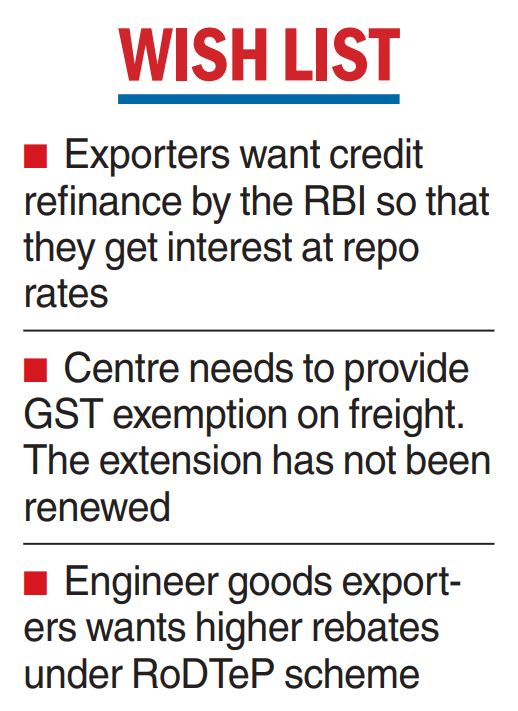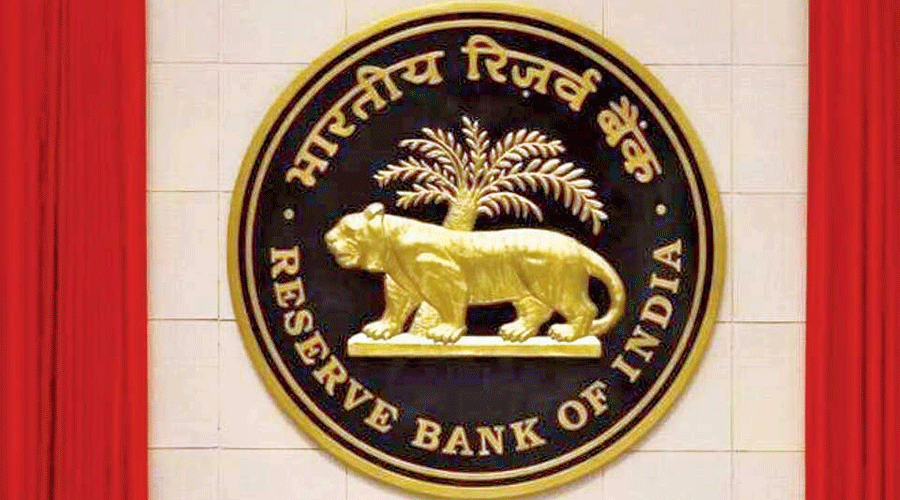With the Centre merely extending the foreign trade policy by six months and global trade on the downturn, exporters are demanding cheaper credit and an extension of GST exemption on freight rates.
They also want the government to restore the interest equalisation rate to 5 per cent and increase the rates of input duty remission under popular schemes.
The RBI should introduce a refinance facility so that exporters get credit at the repo rate, A. Sakthivel, president of exporter body Fieo, said.
“Such a measure will be extremely beneficial for our small exporters as the interest rates in many competing countries are much lower than in India, he said.
Sakthivel said the non-extension of the notification on GST exemption on freight had caused panic and added to the liquidity challenges of the exporters.
Payment of GST will affect liquidity, particularly as the interest rates have also moved northward with a recent hike by the RBI. The payment of GST on freight and subsequent refund particularly through the ITC (input tax credit) mechanism comes with a lag of 2-3 months.
EEPC India — the organisation of engineering goods exporters — said the government needs to relook the rates under the popular Remission of Duties and Taxes on Exporter Products (RoDTEP) scheme and give a full rebate on the taxes that remain in the production chain.

It also wants the steel sector under RoDTEP as steel is the most widely used raw material in the engineering industry.
Ajay Sahai, DG and CEO of Fieo, said: “The WTO forecast for 2023 of just 1 per cent trade growth reflects the challenging times ahead both for the global trade and economy facing unprecedented inflation.”
Vivek Kumar, economist, QuantEco Research, said: “While WTO’s revised global trade forecast is sobering, it’s not surprising given the steady build-up of headwinds. Disruptions on account of the Russia-Ukraine war and significant tightening of global financial conditions have put the post-pandemic economic recovery under strain.”










